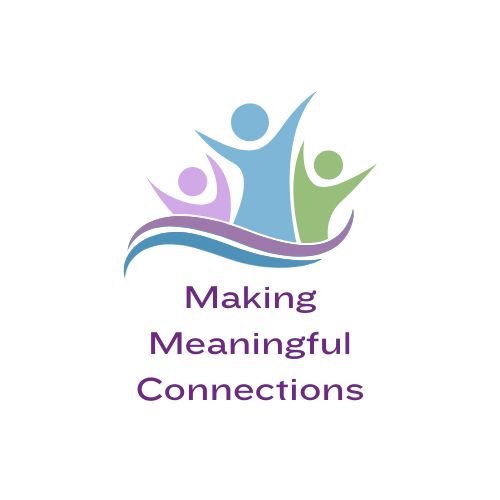
by Barb Abramson | Apr 9, 2020
The Coronavirus has many people on edge these days. Some are understandably worried about contracting the Covid-19, others, less or not at all. We have been instructed to stay at home, and limit interaction.
For those of us who do crave, even need that social interaction, it can feel challenging to not be out among friends, at events or at work. Fortuntately, there are plenty of ways to safely connect with each other using technology.
You may already be using Texting, Facebook Messenger, What’s App, Instagram – and any other “texting” websites that you are familiar with as a great way to stay in touch and, check in with friends and family.
Some of these platforms also provide Video Chats. Other platforms like Zoom and some webinar programs allow for hosting business meetings that can handle from two people to large groups online together. Schools are using them for online classes and friends and families are having coffee dates, celebrating special events and connecting from around the globe
And online courses, both paid and for free are being offered on Facebook, Instagram and many websites, including live cams you can view throughout the day as well as free concerts, and links to more amazing content.
Ready to learn something new now that you have the time? There are also amazing videos with instructions for exercise, to learn to cook, paint, garden — and so much more.
Here is a short list (more are offered every day) of many I found to help you occupy your time, and explore new places. (Some especially for kids) – For more, Google your interests., There are lots of options!
20 Virtual Field Trips to Take with Your Kids
More Field Trips Here!
Astronauts Reading to Kids from Space
Ivy League University Courses
Famous Museum Tours
National Parks 360° Tours
Experience the Rides at Disney from your Couch!
And, for those that are happy hanging at home, this may be easier for you than people who thrive on social interactions and an active out-in-the-world lifestyle.
Our new reality can feel overwhelming at times. Many people I have talked to are frustrated and lonely. Canceled events, lines at the grocery store and lack of products creates stress. Dinner with friends is on hold.
The Big Question on many people’s minds is how long will this Social Isolation last? When will we be able to return to the Old Normal? While we don’t have that answer just now, there are some ways to cope with the New Normal.
Certified Hypnotherapist Rene Brent, an expert in reducing stress and anxiety recommends to her clients to have minimum exposure to the news. If you are feeling stressed, you can reach out here for online support. She is offering some free Facebook Live sessions as well.
Your mindset will be a big part in how you handle the changes in everyday life.
• Be kind to everyone – on those rarer shopping trips – and especially online. It’s really easy to lash out with our frustrations. Remember that we are all going through this together.
• Read the book you never had time for. Take a walk. Meditate. Breath deeply. Calm and Insight Timer are great Apps with thousands of programs for relaxing, sleeping and dealing with stressors.
• Practice Gratitude. It will trigger your immune system in a positive way and lighten your mood. Try writing three things you are grateful for each morning and evening.
• Focus on what sparks joy. Turn off the News, watch a funny movie, play games with the family, dance like no one is watching!
Please leave a comment on what you are doing to keep busy and what new things you are trying.
Stay Tuned! I will be taking some Fun Team Building Events and Activities Online Soon!
As always, I look forward to connecting with you.

by Barb Abramson | Nov 5, 2019
Moving to a new city is exciting. There are so many experiences to discover; from scenery, to food, to culture.
It can also be a little overwhelming leaving behind all the familiar people, places and experiences, that you know like the back of your hand.
My husband and I moved a few months ago to Nashville from Orlando, where we both grew up. The sights, smells, our friends there — were all familiar. But when our son and daughter-in-law asked us to relocate and be with them and their growing family, we made the decision to make a change.
At first, we were focused on the new home, getting unpacked, fixing it up to our taste and spending time with our family. But once the shiny outer coating of the move wore off, we realized that we missed many things about our previous life — namely our friends and our routines.
I was driving to the grocery store recently and pulled up to the stop light, noticing a bicyclist next to me. I glanced at her bike and the spokes on the wheels caught my eye. The rim of the tire is held together by the spokes, connecting them and supporting each other — each one independent, yet together they create something strong.
When the light changed, the woman began pedaling and I watched for a moment as the bike and rider traveled forward. It made me smile thinking about how it was time for me to move forward and make new connections in my new home town.
Making those connections is really important. Relationships with others are truly the spokes of our world and represent community, friendship, common ground, support and much more. There are so many options available from Networking, to Meetup Groups to Book Clubs to Sports Groups just to name a few, that meet regularly so you can really get to know your fellow participants in a meaningful way.
Now I’m really excited about expanding my circle and making new friends.
I’m also thinking about getting a bike . . . and meeting some people to ride the road with!

by Barb Abramson | Nov 8, 2017
I remember vividly the moment I knew that a major change was needed for my parents. My mom had some major medical complications and needed a level of care my father could no longer provide. I was on the phone with my cousin, wandering through the grocery store, trying to find something to cook for their dinner. This became a nightly ordeal.
His early dementia (that would eventually lead to Alzheimer’s) and her short-term memory loss from a stroke, combined with congestive heart failure, kidney issues, and diabetes meant they could no longer live at home on their own.
Stressed with their care, my job and care for my then teenage son, I was exhausted and unable to care for them as well.
My cousin, sensing my despair, urged me to consider Assisted Living Facilities (ALF’s) so that all of us would be able to live happier lives.
I searched and found the perfect solution—close to my home, affordable and with activities I was sure my parents would enjoy.
Within two weeks, I had them moved in and began renovating their home for sale, confident that life was back on track for everyone.
However, I made a huge mistake. I didn’t consult with my parents on the place I picked out and it caused some hurt feelings. The truth is, most seniors don’t choose to move to Assisted Living.
Here is what I could have done better.
1. Sit down with my parents to discuss the need to move
My parents had lived in their house for 37 years and the decision to move them was not theirs. There were other solutions I should have considered including home care.
2. Involve them in the selection of their new home
Once my parents knew they were moving, the decision had already been made on where they were moving to. I had invested the time to visit and explore all the options-looking at the places that were most convenient to me, were in our price range and had a few activities I thought my parents would enjoy. I never considered where their friends might be living and thought I was being the good daughter by taking care of the details for them. Instead, they felt shoved into a situation without any control.
3. Help them adjust
Being “relocated” was a big culture shock for my parents. Moving from a three-bedroom, two-bath home to a much smaller apartment was difficult in many ways. Besides feeling displaced, they weren’t able to take all their things with them and although I didn’t recognize it, depression set for both of them. I realize now that talking to a counselor may have made it easier for all of us.
My own exhaustion got in the way of making better decisions.
If you are going through something similar, know There are experts that can help guide you through the process and ease the stress and transition for everyone involved, including social workers, estate planning attorneys, religious organizations, and community organizations that specialize in seniors.

by Barb Abramson | Aug 5, 2017
Technology is a wonderful thing.
I am a member of the Boomer generation, and while I try to keep up with all the Millennials who probably have never experienced life without technology in their grasp, there are times I feel overwhelmed and disconnected.
That sounds like an oxy-moron.
The very thing that keeps us connected to the rest of the world through millions of apps, (2.8 million for Android and 2.2 million for Apple as of March 2017,) and websites has me feeling disconnected.
I’m not against technology. I have a Smartphone, a computer, an iPad, even a Smart TV, and I use them all every day.
Our devices have become a third leg, we don’t go anywhere without them. I’m guilty of that as well. I feel lost without my iPhone, check it first thing in the morning and keep it nearby at all times. And of course, I’m not the only one. Almost everywhere you look, people are staring at their phones. Some use it for entertainment, others reading the news, or checking out the latest shopping deals; the list goes on and on. There really is a good, bad and ugly of Smartphones.
Many people probably don’t even remember a time when people struck up conversations in line waiting to buy movie tickets. They either have their faces glued to their phone, or they have bought the tickets . . . ONLINE!
We have become content to spend more time alone, our only companion our hand-held devices.
Or, when we are with others, we’re not engaged in conversation because we are checking Facebook, Tweeting or Texting. What has happened to our human connections?
The question then becomes:
How can we use technology to stay connected?
There are so many cool apps and devices that can keep us in touch with one another. More than I can list. More than I have tried. More than I will ever hear of and try.
But that’s not the point.
Whatever technology tool you use to get together with people, use it solely as a tool and then rely on human interaction.
Be present with each other. Sure, use your phone to text, set up meetings or social events, but when you are present in each other’s company, BE PRESENT. Take a picture, post it on Social Media and put your phone away. Make eye contact, smile and have a real conversation.
I get there are situations where you can’t physically be together and have those in-person experiences. And that is where technology is a real plus.
Skype or other technologies such as Google Hangout and Zoom where people who don’t live in the same town or even country can see each other are amazing for connecting. Not only are these services available through your computer, but with a Smart TV, programmed to access the Internet – you can interact with friends and family on the big screen.
Even video games that are played online that allow users to chat with each other have value in connecting the players to each other.
But here’s the key to really connecting. If your phone is in your lap and you are constantly looking at it, chatting with others, posting to social media, shopping online, etc. then you have missed the point of being present.
◊♦◊
Interested in being connected on a human level? I conduct workshops that teach people the skills to connect through their values — Ask me about team building events for Corporations, Seniors, and Kids.
Previously published on PakWired.

by Barb Abramson | Jun 10, 2017 |
How you choose to think about a situation is going to determine how quickly and successfully you move through it.
This applies to many areas in life: money, relationships, work, comments you overhear, things you read on the Internet, and so much more.
You have the power to choose how deeply you internalize any situation and while it may take some practice, each time you rise above what is happening and view it more objectively, your skill level increases.
Here is what I discovered
You can’t change the past, but you can change the energy you allow it to own.
Having been a student of life, all my life, I learned much of what I know from observing others and how they react and respond to people and circumstances.
Not to say I haven’t learned from my own experiences as well, but it seems easier, or perhaps more clear to notice others first and then in reflection, ask yourself what you would do in the same situation.
You can go forward, backward, or do nothing.
Consider these options
- You can dwell on the situation, letting it fester and make you sick emotionally (and physically.)
- You can seek out more information to understand what occurred and if it is a situation that can be resolved.
- You can accept where you are and move forward, onward and upward.
I’m not saying forget something happened. That’s how we learn and make different choices in the future. But the energy doesn’t need to have an emotional charge that brings us down.
This is why I recommend looking at it from a different view—as if you were not part of the equation and you were only observing.
Try it and let me know if it affected you differently.
Photo: Pixabay
◊♦◊
Did you know that happier people can make an organization become more profitable? My workshops help people find common ground, build business bonds, and strengthen relationships.





